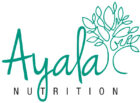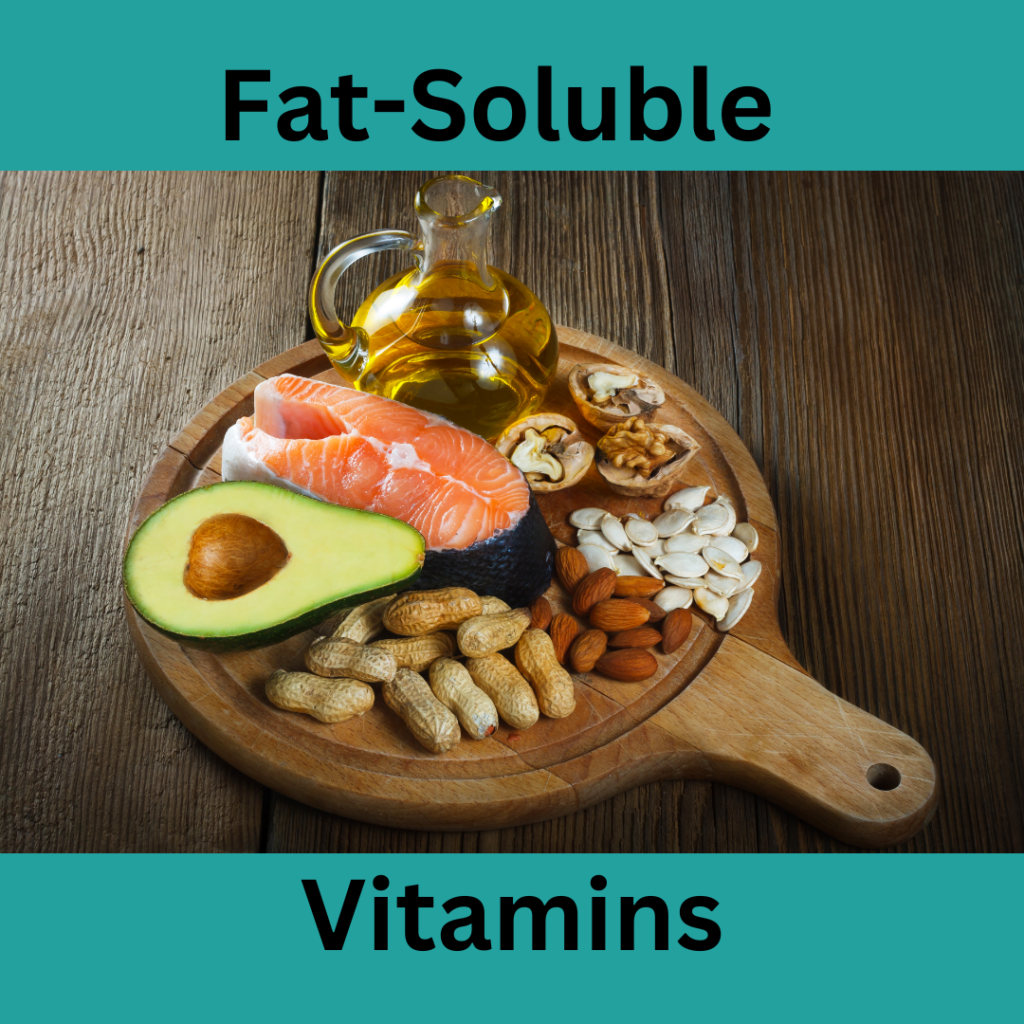Need another reason to have some sources of fat in your diet? I touched on fat-soluble vitamins in my post from last June on The Benefits of Fats in our Diet but the more I have talked with clients about this over the last few months, the more I realize this isn’t a well-understood topic. Let’s start at the beginning with vitamins.
Vitamins are micronutrients that our bodies require for a slew of functions. We cannot make these vitamins so we must get them from the food we eat. Vitamins fall into one of two categories: 1) water-soluble or 2) fat-soluble. Water-soluble vitamins such as the B-vitamins, Vitamin C and folate must dissolve into water before they can be absorbed into our body.
Fat-soluble vitamins such as vitamins A, D, E and K on the other hand dissolve in fat. This means that they require fat from our food to be absorbed into our bloodstream and transported all over our body. To get the most of our vitamin-rich foods, we should be having a source of fat to make sure we are able to absorb these vitamins (in addition to all the other benefits of adding fats in our diet!). Let’s take a closer look at each of these vitamins, where they are found and the benefits that they provide for us:
Vitamin A is most commonly associated with our vision but it is also important for its role in our hair and skin health, remodeling bone, as well as boosting our immunity. Here are some of the foods that are great sources of Vitamin A:
| Sweet Potatoes | Spinach | Kale |
| Carrots | Broccoli | Pumpkin |
| Tomatoes | Red Bell Pepper | Beef Liver |
| Cantaloupe | Mango | Fish Oil |
| Eggs | Milk | Fortified Foods |
Vitamin D is known for its role in our bone and muscle health and also supports our immune system and promotes brain health. We get most of our Vitamin D from our exposure to sunlight although it is found in some foods naturally as well as others that have been fortified. Here are some sources of Vitamin D:
| Cod Liver Oil | Salmon | Swordfish |
| Tuna | Fortified Orange Juice | Fortified Dairy Products |
| Sardines | Egg Yolk | Fortified Cereals |
Vitamin E is most known for its role as an antioxidant capturing loose free radicals that cause damage to our cells. Vitamin E is also known for its role in promoting immune function and preventing clots from forming in our arteries. Vitamin E can be found in:
| Wheat Germ Oil | Sunflower Seeds & Oil | Almonds |
| Safflower Oil | Hazelnuts | Peanut butter |
| Avocado | Mangoes | Red Bell Pepper |
| Corn Oil | Spinach | Pumpkin |
Vitamin K is most known for its role in blood clotting but is also involved in the production of proteins involved in bone tissue for building of healthy bones. Foods that contain Vitamin K include:
| Collard Greens | Turnip Greens | Kale |
| Spinach | Broccoli | Soybean & Soybean Oil |
| Fermented Soy | Dry Roasted Cashews | Canola Oil |
So, what does this mean for our meals? If you haven’t read my post on Balanced Eating, this is a good one to visit. You will see that at each meal, I recommend a source of dietary fat- not just to help us absorb our fat-soluble vitamins but also for improved satiety and taste! This could be as simple as adding some avocado to your egg sandwich or having some nuts in your yogurt parfait (especially if you’ve used a fat-free yogurt) or even adding some butter or olive oil to your pasta at dinner. While fats have definitely gotten a bad rap over the years, don’t be afraid of this necessary part of our diet. Instead, look at how to have them in moderation as part of a balanced diet.
References
Fat-Soluble Vitamins: What They Are and How To Get the Most Out of Them from the Cleveland Clinic.
Vitamins and Minerals from the Harvard T.H. Chan School of Public Health.

